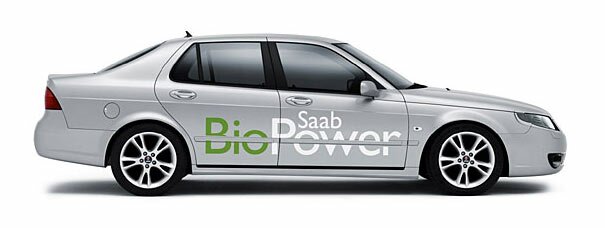
What is bioethanol?
 Introduction Introduction |
 |
|
 Bio-Ethanol Bio-Ethanol |
 |
|
 Frequently Asked Questions Frequently Asked Questions |
 |
|
 Fascinating Facts Fascinating Facts |
 |
|
Bioethanol is an alcohol-based fuel which can be mixed with petrol. 5% of bioethanol can be included in ordinary petrol and used by any car in the UK which runs on unleaded petrol. It is also possible for some specially-adapted cars to run on up to 85% ethanol/15% petrol.

Saab's 2.0 litre 9-5 model is one of the first Flex-Fuel cars on sale in the UK. The turbocharged engine can run on any blend of petrol and ethanol and takes advantage of ethanol's superior octane rating to produce 180 bhp when running on E85 mix. The output drops to 150 bhp using petrol.
Bioethanol is made by the fermentation of crops such as sugar beet or wheat. When you look at the whole life cycle of production it produces up to 70% less carbon emissions than conventional fuel. Therefore, using bioethanol in all our cars could reduce carbon emissions in the UK and help to reduce the impact of climate change.
The UK's first bio-ethanol plant is being built by British Sugar - find out more at http://www.britishbioethanol.co.uk/
Click here to download the 'Home Grown Power' PDF a technical report on the work done by Triple Eight Race Engineering to convert Fiona Leggate's Vauxhall Astra to run on bio-ethanol
In order to view this PDF you will requre a PDF viewer such as Adobe Reader
This article from Racecar Engineering takes a close look at the philosophy behind EEMS’ work on the use of fuel metering to control engine power outputs and to create equivalence between different fuels. Using the concept of “energy equivalent flow” EEMS wants to create engine regulations that encourage fuel efficiency and give a level playing field for new fuels and engine technologies without detracting from the spectacle of high speed motorsport.
